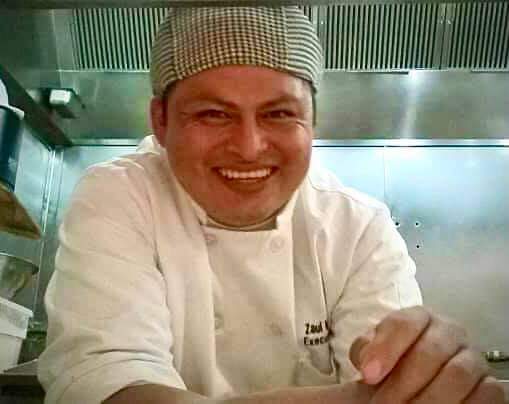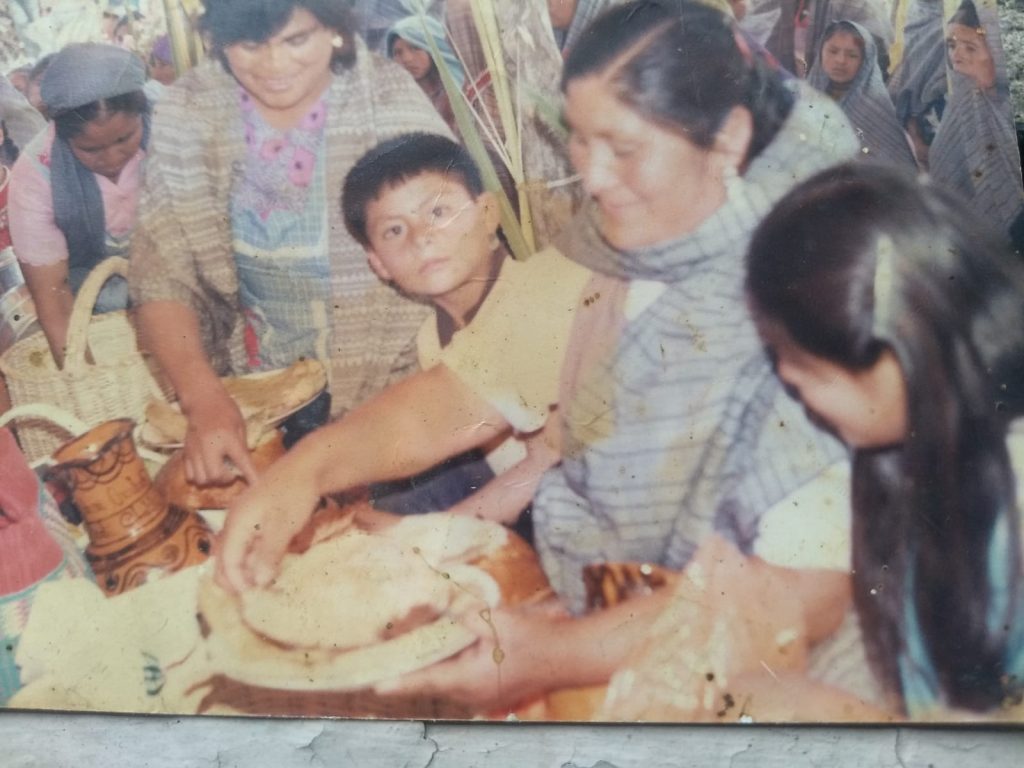Chef Irwin Sánchez of Under the Volcano in Midtown Manhattan is a very interesting guy. During the pandemic, he pivoted from cooking bar burgers in Brooklyn to running his own Pueblan food pop up in Queens called Tlaxcal Kitchen. The poet and language scholar gets to the root of traditional Mexican dishes through their etymology with delectable results. You can try his cooking at Under the Volcano or purchase a ticket to Bowl of ‘Zole for a taste of his off-menu special pozole.

Food Karma: How did you get into cooking?
Irwin Sánchez: Far from home you miss the sun, which has a different glow, the climate and the most important thing is that the food, the only thing that can be recreated.
First cooking at home, then taking a course at ROC-NY, I began to work in Mexican restaurants and that’s where I realized that Mexican cuisine is still not reaching its full potential.
FK: How do you incorporate your poetry and language work into your food?
IS: My first language is Nahuatl then I learned Spanish at school. I am Mexican Nahuatl, my blood has indigenous drops. For me, this is the identity and unfortunately our peoples are disappearing spiritually.
For me, poetry and metaphor are already involved in the Nahuatl language, in xóchitl in cuicatl poetry in Nahuatl. Literally Flower-Song, or flowers and songs; double metaphor with which they named poetry, which is essentially a metaphor.
FK: What’s missing from the Mexican food scene in New York City?
IS: Due to the indigenous origin and the discrimination that it has suffered since the sixteenth century, the knowledge that is had in the culture through the food of the Mexican people has been ignored, and when I see that some restaurants want, according to them, to enhance a dish that is not yet It has been fully understood, as an example the “mole” which means “movement” which implies that it has to be cooked over low heat for long periods of time without stopping moving and this information is in the word mole.
FK: What has it been like taking the helm of your own kitchen during the pandemic?
IS: Because of the way of thinking that I have as a Nahuatl, where many closed, I saw an opportunity and a lot of satisfaction to do something not to be locked up and have many achievements and that people will notice that there are other dishes that have not been presented as they should be. For example, the Arabic taco and the cemita that originate from Puebla. And it is here that I verified that Mexican food has not reached its maximum potential

FK: What did your pop up teach you about your cooking and the industry?
IS: I know that I have many friends who supported me from the beginning and it was here that that beautiful friendship came to light. The community also responded positively.
FK: How do you like to cook with mezcal?
IS: The maguey, which is the plant where mezcal is extracted, has many uses in gastronomy and when I saw that the Under The Volcano bar has a good variety of mezcals, I decided to make the menu that it has today such as the lamb barbecue or the mixiote.
FK: What associations do you have with pozole?
IS: The pozole has been in Mexico since the corn was domesticated, from the tortilla, fermented drinks, atole and many other uses in Mexican cuisine. And the pozole plays an important role in indigenous society, consuming it in very important festivals and ceremonies in the Nahuatl culture.
FK: Will you be making a classic pozole or adding a twist?
IS: When I say classic I mean from the name pozolli because I always say that corn is the forgotten hero in this dish due to the historical confusion where they focused on the sacrifices in Tenochtitlan according to the historians of that time who described the use of the pozole in the ceremony. Forgetting or due to ignorance of his name, many came to the conclusion that upon the arrival of the Spaniards they exchanged sacrificial meat for pork.
For my pozole, it means fermentation, which is fermenting the corn to get that unique flavor, while others want to use the protein as the hero and secondly the corn. With that said, I’ll make classic pozole.
FK: Anything else you want to share?
IS: In the 16th century, the inquisition made ceremonies forbidden, the only safe place was the kitchen.
Where the elements such as fire, water, air and earth were found. With these concepts of the kitchen, my love for Mexican gastronomy developed, that to cook you have to be in a good mood and with a lot of respect for the place.
Where my grandparents give a lot of advice and scolding for my training as a human being {tlacatl} so the Nahuatl culture from its language using metaphors and description in conjunction with the kitchen plays an important role in identity and I share that in the classes of Tlaxcal-kitchen that have been temporarily suspended due to the pandemic.
